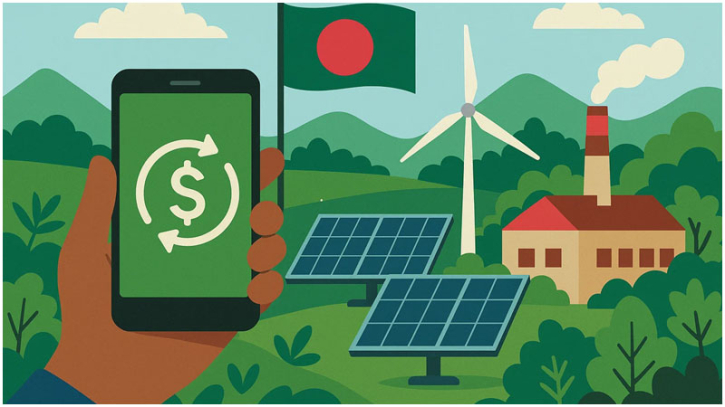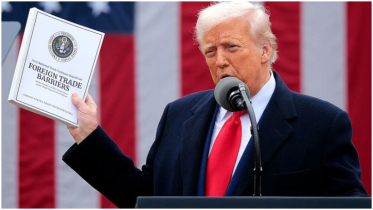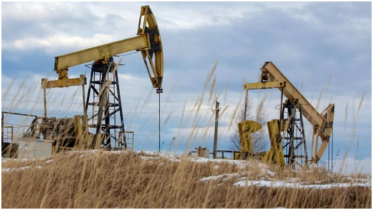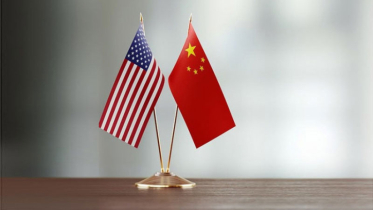How digital finance powers Bangladesh's green economy?

In Bangladesh's rural heartlands, which are prone to flooding, a silent revolution is happening; Mobile fintech platforms are becoming important ways for climate-driven investments to flow. Villagers are rapidly using digital wallets and micro-lending programs to pay for solar household systems and climate-resistant farming gear, avoiding banks and turning problems into chances.
The Bangladesh Fintech Innovation Council (BFIC), a national platform driving fintech growth, says climate-aligned digital finance is an “emerging force” in the country’s green economy. Bangladesh Bank's criteria for sustainable finance have sped up this change by requiring at least 5% of loan portfolios to go to green projects and 15% to go to projects that are good for the environment.
As of March, Banks' green finance portfolios grew to TK7,927 crore in the first quarter of 2025, while overall sustainable financing grew to TK1,46,851 cr.
Major fintech players like bKash, Nagad, Rocket, Upay are now facilitating payments for solar panels, eco-friendly cookstoves, many installment options, and climate-focused micro-insurance.
A lot of people work with microfinance groups like ASA and BRAC to offer weather-indexed insurance, underwriting, and payment plans.
Youth Environmental Organizations in Bangladesh, like Earth's Ant, are also trying to link these financial tools to grassroots sustainability projects. They are doing this by reaching out to communities to raise awareness of digital finance for clean energy, waste reduction, and climate resilience. BFIC said that these kinds of partnerships "shorten the last mile" in getting climate finance to where it needs to go by putting payment and loan services in one digital space.
Programs supported by Grameen Shakti and financed through IDCOL have installed over a million solar home systems, achieving repayment rates of around 96%.
These systems give communities the electricity they need for small enterprises, mobile charging, and home illumination. This helps them deal with the effects of climate change while also creating more economic opportunities.
Bangladesh Bank’s green refinance schemes offer low-cost capital for renewable energy and clean-tech projects, from solar irrigation pumps to biomass systems.
BFIC said, “We don’t have enough money flowing into renewable energy. Let’s get government and business to work together, make loans cheaper and safer, and cut taxes on green tech so the sector can grow faster.”
Organizations like Earth’s Ants advocate for coupling such finance with environmental education, ensuring rural adopters not only access technology but also understand its climate benefits.
Despite progress, gaps remain in financial literacy, especially in rural and disaster-prone areas. Experts warn that without robust cybersecurity, regulatory harmonization, and climate project verification, the sector risks slowing momentum.
As greater numbers of international funders and investors choose decentralized, tech-enabled climate solutions, Bangladesh's fintech sector is ready to take the lead in community-based green finance. For a country on the climate frontlines, Digital Finance is fast becoming a key lever for building resilience from the ground up.
Source: Dhaka Tribune.
.png)




